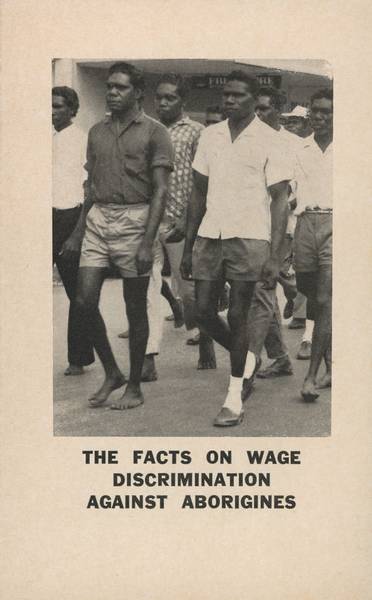Equal wages, 1963-66
For white civil rights activists in the 1960s, equal pay was the basic marker of acceptance and social inclusion in Australian society. Shirley Andrews, who helped establish the Equal Wages for Aborigines committee, pointed out that people who were paid such a small proportion of the basic wage were not able to live like white people, as required under the assimilation policy.
Aboriginal workers had concerns other than wages. For example the Gurindji pastoral workers were unhappy about their appalling living conditions: a diet of salt beef, damper, sugar and tea, and white stockmen coming back into camp when the Aboriginal stockmen were still out with the cattle, and taking advantage of Aboriginal women.
In 1968 the Conciliation and Arbitration Commission ruling on equal wages in the cattle industry came into force. When the case was being heard in 1966 the Commission accepted the employers' evidence that 'many of them expect[ed] to change over to white labour if Aborigines are to be paid at award rates'. This did happen and many Aboriginal stockmen faced unemployment for the first time.
The achievement of equal wages in the pastoral industry thus turned out, for many, to be a hollow victory. Families and whole communities were turned off properties where they had worked for generations. People drifted into towns and were given 'sit down' money (unemployment benefits). They were no longer able to fulfil obligations to their country.
The Gurindji people at Wave Hill, however, walked off the job, camped at Wattie Creek and refused to move. The Wave Hill walk off section of this website is the continuation of the story of the Gurindji people and their struggle for justice and their land.
